第1章
On August 18, 1814, Admiral Cockburn, having returned with his fleet from the West Indies, sent to Secretary Monroe at Washington, the following threat:
SIR: Having been called upon by the Governor-General of the Canadas to aid him in carrying into effect measures of retaliation against the inhabitants of United States for the wanton destruction committed by their army in Upper Canada, it has become imperiously my duty, in conformity with the Governor-General's application, to issue to the naval forces under my command an order to destroy and lay waste such towns and districts upon the coast as may be found assailable.
His fleet was then in the Patuxent River, emptying into the Chesapeake Bay. The towns immediately "assailable," therefore, were Baltimore, Washington, and Annapolis.
Landing at Benedict's, on the Patuxent, the land forces, enervated by a long sea-voyage, marched the first day to Nottingham, the second to Upper Marlborough. At the latter place, a town of some importance, certain British officers were entertained by Dr. Beanes, the principal physician of that neighborhood; and a man well-known throughout southern Maryland. His character as a host was forced upon him, but his services as a physician were freely given, and formed afterward the main plea for his lenient treatment while a prisoner.
As the British army reached Upper Marlborough, General Winder was concentrating his troops at Bladensburg. The duty of assigning the regiments to their several positions as they arrived on the field was performed by Francis Scott Key, a young aide-de-camp to General Smith. Key was a practising lawyer in Washington who had a liking for the military profession. He was on duty during the hot and dusty days which ended in the defeat of the American army. Subsequently, he could have read a newspaper at his residence in Georgetown by the light of the burning public buildings at Washington, and he passed with indignant heart the ruins left by the retreating army when, after a night of frightful storm, they silently departed in a disorderly forced march of thirty-five miles, to Upper Marlborough. He then knew what any other city mightexpect upon which the "foul footsteps' pollution" of the British might come.
The sorry appearance of the British army gave the Marlborough people the idea that it had been defeated, and on the afternoon of the following day Dr. Beanes and his friends celebrated a supposed victory. Had they stayed in the noble old mansion that the worthy but irascible doctor inhabited near Marlborough, "The Star-Spangled Banner" would never have been written. Tempted by the balminess of a warm September afternoon, however, the party adjoined to a spring near the house, where, the negro servant having carried out the proper utensils, the cool water was tempered with those ingredients which mingle their congenial essences to make up that still seductive drink, a Maryland punch. It warms the heart, but if used too freely it makes a man hot-tempered, disputatious, and belligerent. Amid the patriotic jollity, therefore, when three British soldiers, belated, dusty, and thirsty, came to the spring on their way to the retreating army, their boasting met with an incredulous denial, which soon led to their summary arrest as chicken-stealers and public enemies. Confined in the insecure Marlborough jail, one of them speedily escaped, and reached a scouting-party of British cavalry, which, by order of Cockburn, returned to Upper Marlborough, roused Dr. Beanes out of his bed at midnight, and conveyed him to the British ships at Benedict's.
As soon as Key heard of the arrest of Dr. Beanes, one of his most intimate friends, he hurried, under the protection of a flag of truce, to the British fleet at the mouth of the Patuxent to arrange for his release.JohnS. Skinner of Baltimore, then commissioner for exchange of prisoners, accompanied him with his cartel ship.
When Key and Skinner reached the British fleet it was already on its way up the Chesapeake Bay to the attack on Baltimore. Its destination was too evident for Cockburn to allow Key to depart and give the alarm. He was informed in the admiral's grimmest manner, that while he would not hang Dr. Beanes at the yard-arm, as he had threatened, yet he would have to keep every man on board a close prisoner until certain circumstances occurred which would render their release advisable.
When the ships arrived at their destination he assured them that it would be only a matter of a few hours before they would be free.
From the admiral's flag-ship the Surprise, upon which he was then detained, Key saw some of the finest soldiers of the British army, under General Ross, disembarked at North Point, to the southeast of the city of Baltimore. Then on Tuesday morning, September 13, 1814, the fleet moved across the broad Patapsco, and ranged themselves in a semicircle two and a half miles from the small brick and earth fort which lay low down on a jutting projection of land guarding the water approaches to Baltimore on that side.
Cockburn's boast to Key that the reduction of the city would be "a matter of a few hours" did not look improbable. It was garrisoned by a small force of regulars under General Armistead, assisted by some volunteer artillerists under Judge Nicholson. It was armed with forty-two pounders, and some cannon of smaller caliber, but all totally ineffective to reach the British ships in their chosen position. In addition, a small earth battery at the Lazaretto--which, it will be seen, did good service--guarded the important approach to the city by the north branch of the Patapsco; while Fort Coventry protected the south branch. These batteries were armed only with eighteen and twenty-four pounders.